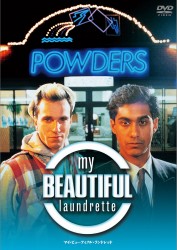- ホーム
- > 洋書
- > 英文書
- > Cinema / Film
Full Description
Now available in Bloomsbury Revelations series, Brecht on Performance: Messingkauf and Modelbooks presents a selection of Brecht's principal writings about the craft of acting and realising texts for the stage. It crystallises and makes concrete many of the more theoretical aspects of his other writing and illuminates the practice of this hugely influential director and dramatist.
The volume is in two parts. The first features an entirely new commentated edition of Brecht's dialogues and essays about the practice of theatre, known as the Messingkauf, or Buying Brass, including the 'Practice Pieces' for actors (rehearsal scenes for classics by Shakespeare and Schiller). The second contains rehearsal and production records from Brecht's work on productions of Life of Galileo, Antigone, Mother Courage and others.
Edited by an international team of Brecht scholars and including an essay by director and teacher Di Trevis examining the practical application of these texts for theatres and actors today, Brecht on Performance is a wonderfully rich resource. The text is illustrated with over 30 photographs from the Modelbooks.
Contents
General Introduction and Acknowledgements
Part One - The Messingkauf, or Buying Brass
Introduction to Buying Brass
Preamble
First Night
(i) Setting the Scene
(ii) Naturalism, Realism, Empathy
(iii) Tragedy; Learning, Science, Marxism
Second Night
(i) Intoxication, Empathy, V-effect
(ii) Acting, Performance
(iii) Science, Social Class, Learning
(iv) Elizabethan Theatre, Shakespeare
(v) The Augsburger, Piscator
Third Night
(i) The Fourth Wall, Emotion; V-effect, Acting
(ii) The Augsburger, Piscator, Weigel
(iii) Social Science and Art
(iv) 'Extreme Situations'
Fourth Night
(i) The Nature of Art
(ii) Emotion, Critique, Representation
(iii) The Augsburger
(iv) Shakespeare
(v) Finale
Miscellaneous Texts
(i) Illusionism, Realism, Naturalism; Social Function of Theatre; Empathy
(ii) Acting
(iii) Thaëter, Piscator, Neher
Plans and Appendices
(i) Plans
(ii) Appendices
Practice Pieces for Actors
(i) Parallel Scenes
The Murder in the Porter's Lodge
(Parallel Scene to Shakespeare's Macbeth, Act 2, Scene 2)
The Battle of the Fishwives
(Parallel to Schiller's Maria Stuart, Act 3)
(ii) Intercalary Scenes
Ferry Scene
(To be played between Scenes 3 and 4, Act 4 of Shakespeare's Hamlet)
The Servants
(To be played between Scenes 1 and 2, Act 2 of Shakespeare's Romeo and Juliet)
(iii) Circular Poems
Part Two - Modelbooks
Introduction to the Modelbooks
On Life of Galileo (1947/48) from Constructing a Role: Laughton's Galileo
Foreword
A Sequence from Scene One: Rotation of the Earth and Rotation of the Brain
Background to the Performance
On The Antigone of Sophocles (1947/48) from Antigone Model 1948
Foreword
Ruth Berlau's Prefatory Note
Prelude and Bridge to Scene One
Neher's Second Design for the Antigone Stage
On Mother Courage and Her Children (1949/50/51) from Courage Model 1949
Opening Remarks
Notes and Scene-Photos for the Prologue, Scenes One and Two
Details from Scene Three
Variations in Berlin and Munich
Concluding Texts from the Model: Scene Twelve
From Theatre Work (1952)
Some Remarks on My Discipline
Bertolt Brecht's Stage Direction
Phases of a Stage Direction
Five Notes on Acting
The Berliner Ensemble Models
Theatre Photography
Does Use of the Model Restrict Artistic Freedom
How Erich Engel Uses the Model
How the Director Brecht Uses His Own Model
From the Correspondence of the Berliner Ensemble about the Model
Creative Evaluation of Models
From Katzgraben Notes 1953
Epic Theatre
Rehearsal Methods
Scenery
Crises and Conflicts
Politics in the Theatre
III,2 Constructing a Hero
Is Katzgraben a Proselytizing Play?
The Verse Form
Verfremdung
II, 3 [Revelation and Justification]
Empathy
The New Farmer, the Medium Farmer, the Big Farmer
What Are Our Actors Actually Doing?
The Positive Hero
Second Dress Rehearsal
Criticism of Elli and Criticism of Elli 2
New Content - New Form
Di Trevis: "Acting is Not Theoretical"
Select Bibliography
Index of Names and Key Terms







